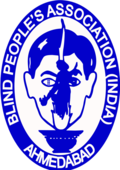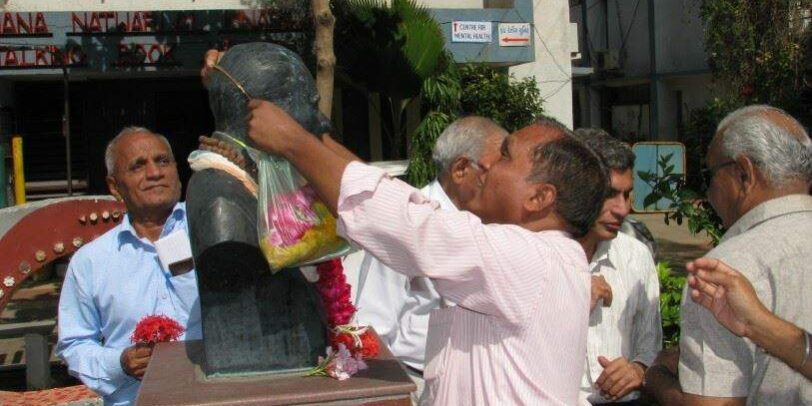Confidence enables Tarak Luhar to overcome lack of vision and lead a fruitful life
A bright student and determined advocate for the visually impaired, Tarak is also a wizard at organising activities to showcase the talents of the blind
Aruna Raghuram
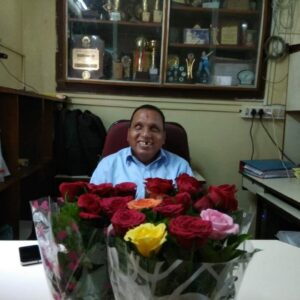
When you speak to Tarakeshwar Khemaram Luhar, 65, you are immediately aware of the confidence in his voice. It is this confidence that enables him to travel across the country alone in spite of being totally blind. The same confidence gives him the amazing ability to organise sports and cultural activities for the visually impaired.
Tarak was born in Nainital, Uttarakhand in 1959. His father was in the Army and the family was transferred frequently. When he was around two years old, Tarak had an eye infection. It was the early 1960s when medical services were poor in the village. Drops put in his eyes caused a severe reaction and the child suddenly lost his vision.
Doctors told his parents that nothing could be done. They also advised Tarak’s parents to ensure that he got a good education. On the advice of his commander’s wife, who was from Gujarat, Tarak’s father admitted him in the School for the Blind in Navrangpura, Ahmedabad.
School became home
Tarak was just four years old at that time. After that, inexplicably, his family did not maintain regular contact with him. But Tarak has fond memories of his school. “It was a residential school with very good facilities. Since I was just four, the school got a special bed made for me. It was a very nice place for children. The teachers and staff were caring. We had lots of toys and games. Sports and PT were compulsory. We were also given mobility training. I studied there till I was 15 years old,” he says.
After completing his schooling, he joined St. Xavier’s College, Gujarat University to study Gujarati literature. A bright student, he graduated with the second rank in the university. As there was no support from his family, he completed graduation with the help of friends and the college management.
He learnt to stand on his own feet from a young age. He started working from the age of 16 years in the packing department of a pharmaceutical company. Later, he started marketing washing powder to meet his personal expenses.
Sociable nature
Tarak was very popular among his college mates. In fact, he was given an award as the ‘Best Human Being’ when he was in college. He was also good at elocution.
Due to financial compulsions, he could not complete MA. He was even offered a scholarship to study linguistics abroad during his college years but could not take it up.
He joined the National Association for the Blind (NAB), Gujarat State branch, in 1981 as a development officer. His office was on the premises of Blind People’s Association (BPA), Ahmedabad, one of the largest NGOs in India in the disability sector.
“I consider Jagdishbhai Patel, founder of BPA, my guru. He taught me how to work with organisations and how to coordinate activities. Dr Bhushan Punani and Nandini Rawal of BPA also guided me. Nandiniben taught me how to speak and write English since my education had been in Gujarati medium,” says Tarak.
While working as a development officer, he was also put in charge of employment. Once he took charge as employment officer, placement for the visually impaired shot up from 25 per cent to 75 per cent and eventually to 100 per cent!
Teacher’s role
Determined to study further, Tarak completed his B.Ed while he was working. Creditably, he topped in the university! He started teaching braille at the Adult Training Centre for Blind (school for the blind) on BPA premises in 1993. He also taught English to the students. From 2005 to 2017, Tarak served as the principal of the school.
When he was principal, he helped in developing an important technology to assist in reading braille. The engineer, whom he gave the idea to, got the President’s Award in Science and Technology for the invention.
After he retired as principal in 2017, Tarak was appointed development manager of the NAB, Gujarat. Since 2021 he has been secretary of NAB, Gujarat. He has established 22 district branches of NAB in the state. He currently coordinates the activities of these branches and helps them initiate new programmes that are there in urban centres like Ahmedabad.
Tarak is married to Pankajbala, who is also totally visually impaired, and they have a daughter. Tarak and Pankajbala knew each other from childhood. Tragically, they lost their son Rutwij to leukemia when he was eight years old. Even during his son’s treatments, Tarak used to attend to his work for the development and support of the blind. His daughter Hardi is in Ahmedabad and is the field of alternative healing therapies.
Having been almost abandoned by his own parents at a young age, Tarak, in an earlier interview, has expressed his determination to be a good father. As he had spent most of his savings on his son’s medical expenses, he would work extra hours to provide for his daughter’s education.
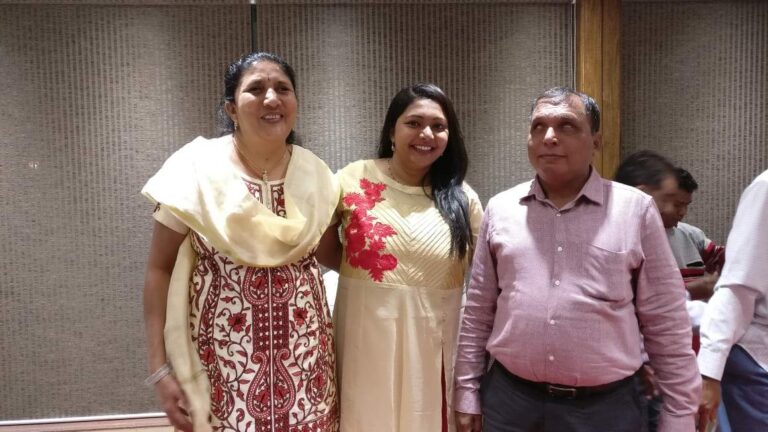
Organising ability
Keenly interested in music from an early age, he established the first Orchestra of the Blind in 1983 and has organised 100 stage performances. His aim is to make talented visually impaired people professional musicians so that they can make a livelihood through their art.
As a result of his enthusiasm and organising abilities, he started the following Gujarat-level events for the blind – cricket, athletics, chess, one-act plays, vocal music, poetry recitation, braille reading and garba.
At the first Kankaria Carnival organised by the Ahmedabad Municipal Corporation (AMC) in 2008, he handled seven stage programmes simultaneously – quite a feat for a visually impaired person! He has encouraged blind students to perform at other prestigious events like Vibrant Gujarat and the Tana Riri Festival.
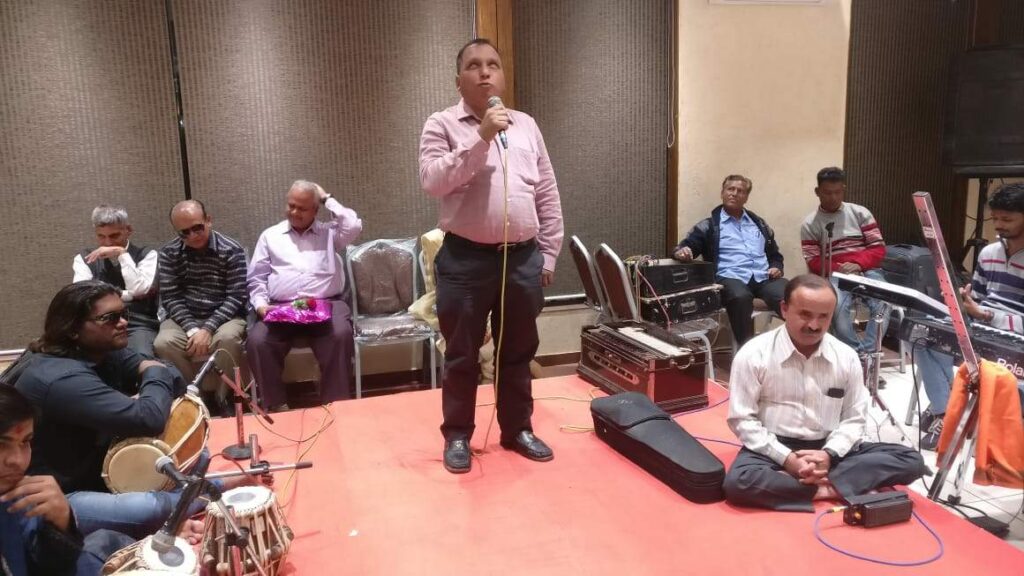
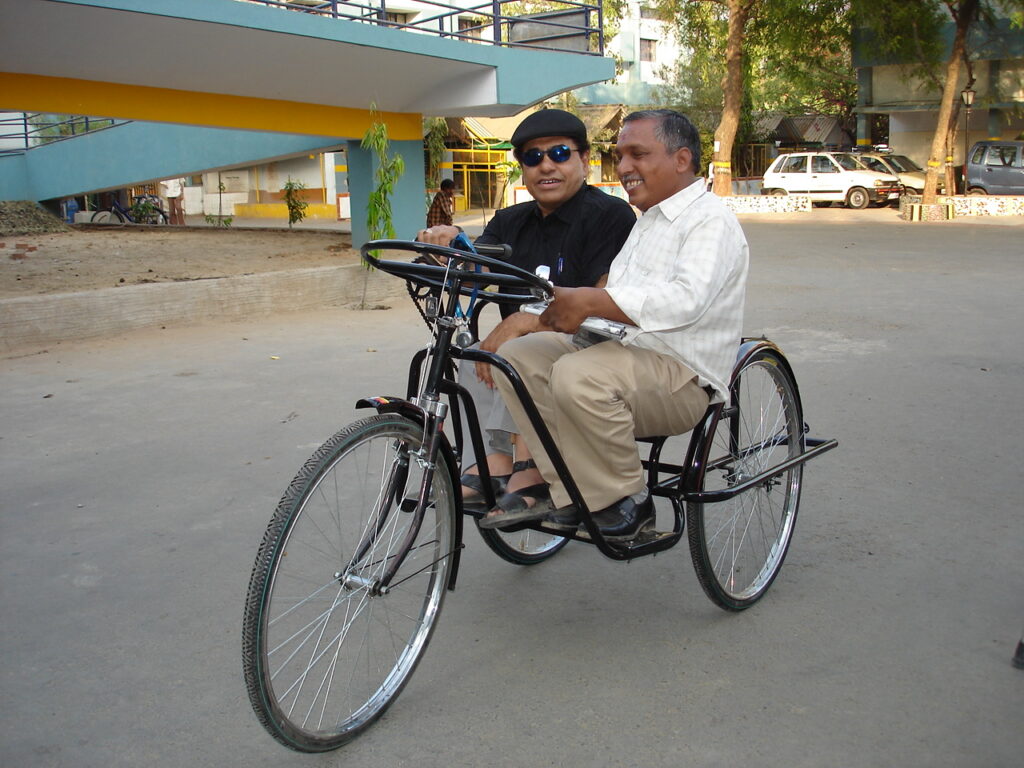
Advocacy successes
Tarak has used both persuasion and the legal route to advocate for the blind. He took up the issue of B.Ed admission for the blind in the Court of the Disability Commissioner. As a result, Gujarat University was told to give admission to blind students.
He also advocated at the national level for the introduction of ‘bridge’ courses for the visually impaired and the certification of these courses. His suggestions were accepted. Another issue he successfully resolved was giving priority in teaching positions for the blind.
In 1982, Tarak established the first telephone booth in Gujarat as a self-employment opportunity for the blind. He set up a unique ‘resource room’ for blind students in 2008.
He motivated many blind students to pursue higher education in fields like MBA and IAS and supported them. He is associated with both the Rotary Club and Lions Club. In 2016, he travelled alone to Kuwait to represent India through AICB (All India Confederation of the Blind) in the Asian Blind Union.
Tarak’s advice to the visually impaired highlights his practical nature. “Become well-versed in technology. That will aid you both in studies and in work,” he says.
